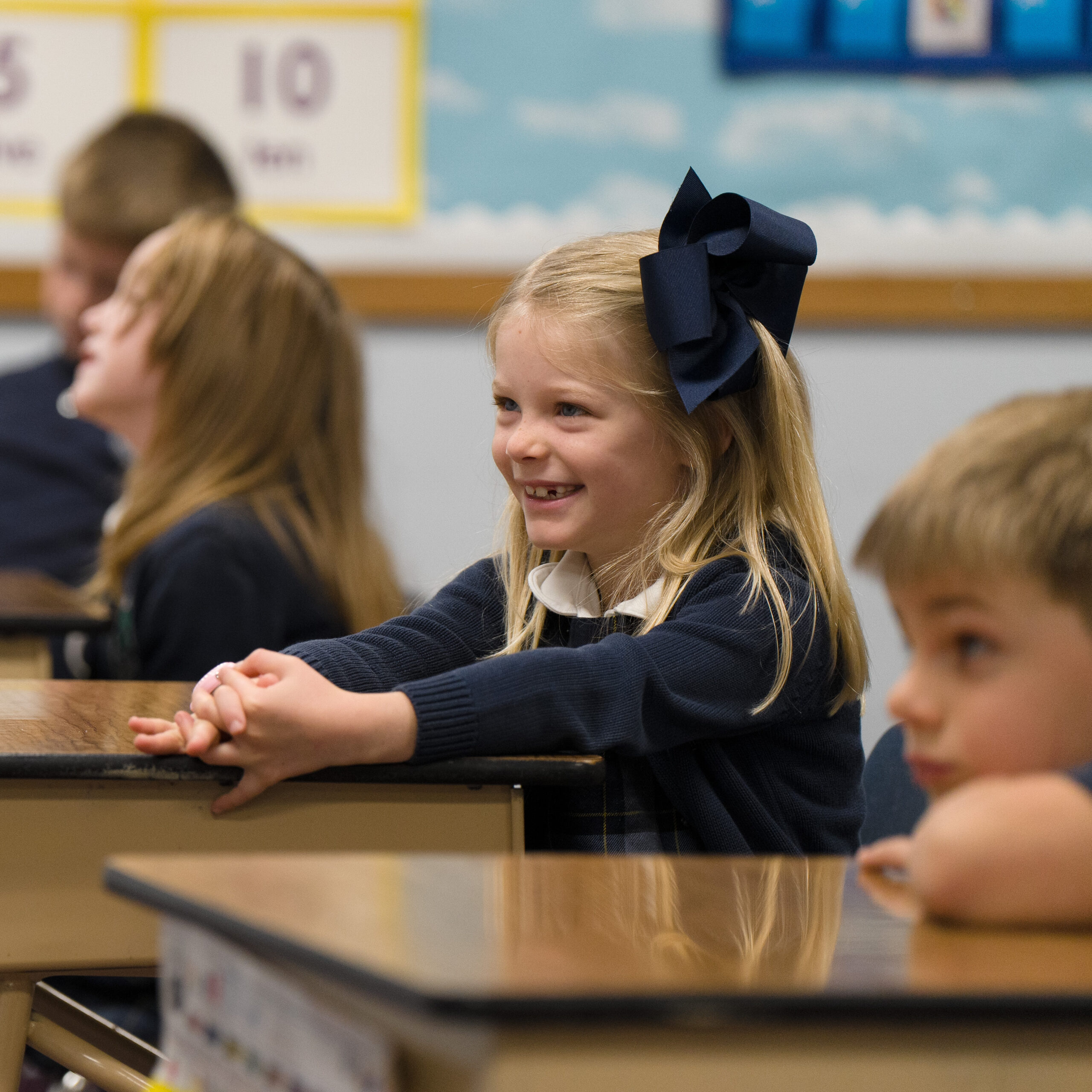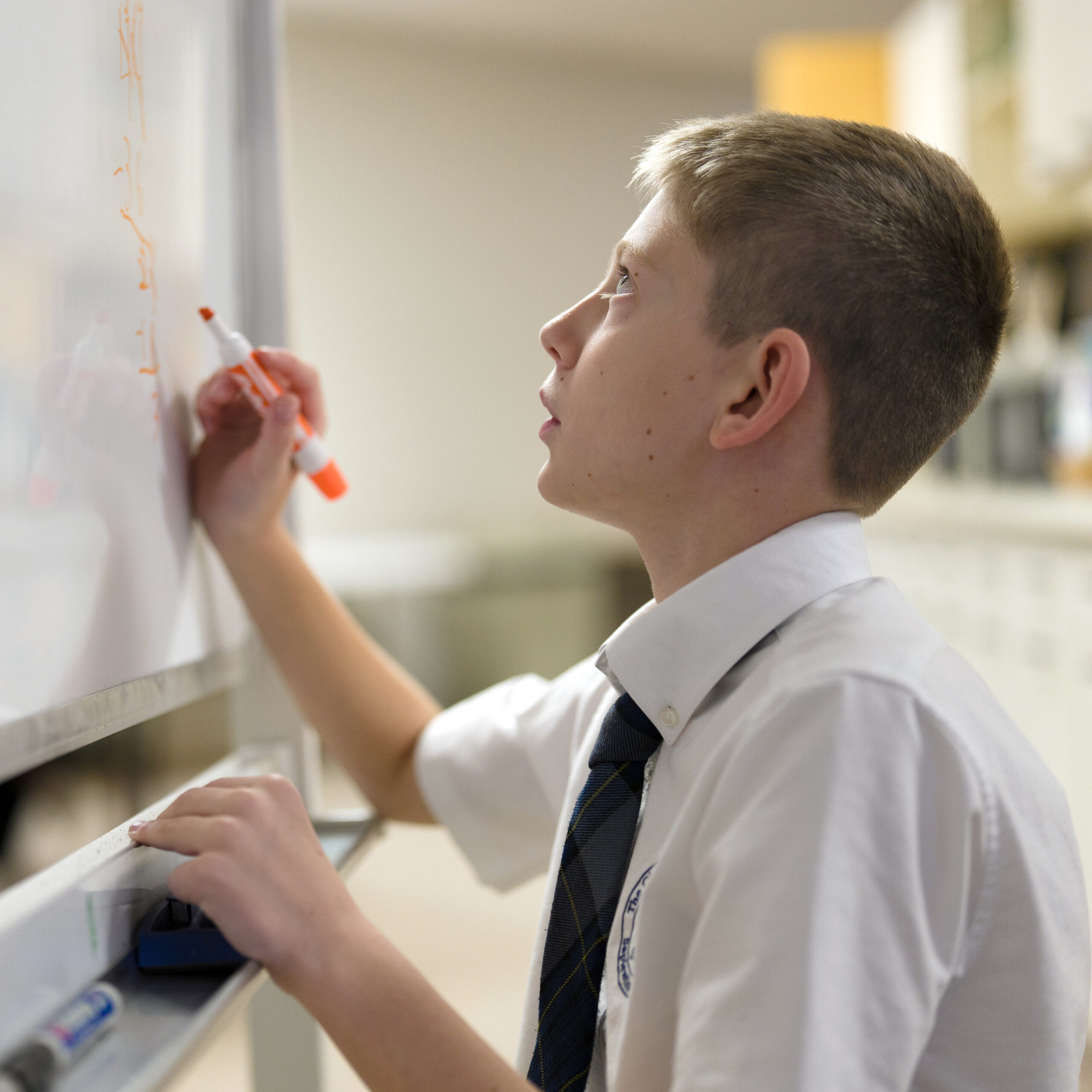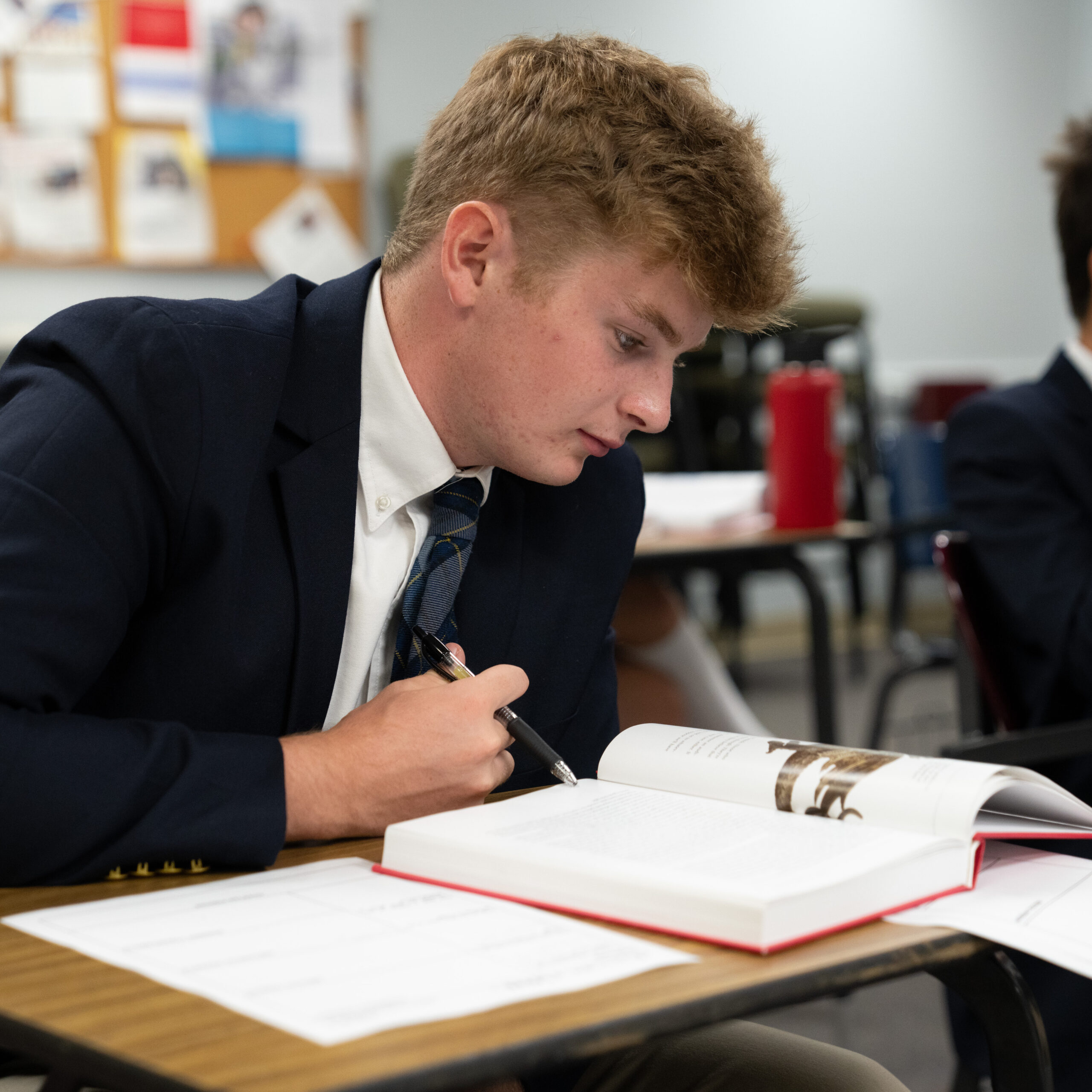Classical Education
Teaching them how to learn, not what to learn.
Classical education teaches students how to learn, not what to learn. It seeks to produce individuals who are skilled, lifelong, self-directed learners, able to reason with ideas and express their conclusions in clear, compelling, elegant language, through both the written and spoken word.
At The Classical Academy, we believe education is more than information transfer—it is soul formation. Our approach to learning is grounded in timeless truths, rich content, and the cultivation of wisdom and virtue. From Kindergarten through 12th grade, students are immersed in a joyful and academically challenging environment that shapes both their character and their intellect.
Grades K–5: A Joyful Foundation
In the early years, our classrooms are filled with wonder. Young students memorize poems, Scripture, and songs—not as drills, but as treasures stored in the heart. Through stories, chants, nature study, and hands-on learning, they are introduced to the beauty of language, the order of numbers, and the goodness of God’s world. Reading and writing are taught systematically and carefully, with strong attention to detail and mastery. These years are about more than gaining skills—they are about forming habits of attention, curiosity, and perseverance that will serve our students for life.
Grades 6–12: Deep Thinking and Discernment
As students mature, so does the shape of their learning. In the upper grades, students read deeply from classic works and original sources across literature, theology, history, and philosophy. They ask meaningful questions and engage in robust discussion. Logic and rhetoric are woven into every subject, helping students not just to express opinions, but to form sound judgments and articulate them with clarity and grace. Math and science are pursued with wonder and precision, revealing the order and design of creation. Throughout, students are called to live with integrity, to love truth, and to prepare for lives of purpose and influence.
Grammar
The grammar stage focuses on laying the building blocks, or the “grammar” of each subject area.
Logic
The logic stage builds on the facts learned in grammar school and students begin to analyze the order of relationships.
Rhetoric
In the rhetoric stage, students express their thoughts and ideas in oral and written form.
Grammar School
Logic School
Rhetoric School
A deeper look at classical education
The Classical Academy Trivium Application Chart
Grades PreK-2nd, Approx. ages 4-8
Student Characteristics
1. Obviously excited about learning
2. Enjoys games, stories, songs, projects
3. Short attention span
4. Wants to touch, taste, feel, smell, see
5. Imaginative, creative
Teaching Methods
1. Guide discovering
2. Explore, find things
3. Use lots of tactile items to illustrate point
4. Sing, play games, chant, recite, color, draw, paint, build
5. Use body movements
6. Short, creative projects
7. Show and Tell, drama, hear/read/tell stories
8. Field trips
(Poll-Parrot)
Grades 3-6, Approx. ages 8-11
Student Characteristics
1. Excited about new, interesting facts
2. Likes to explain, figure out, talk
3. Wants to relate own experiences to topic, or just to tell a story
4. Likes collections, organizing items
5. Likes chants, clever, repetitious word sounds
6. Easily memorizes
7. Can assimilate another language well
Teaching Methods
1. Lots of hands-on work, projects
2. Field trips, drama
3. Make collections, displays, models
4. Integrate subjects through above means
5. Teach and assign research project
6. Recitations, memorizations
7. Drills, games
8. Oral/written presentations
(Pert)
Grades 7-8, Approx. ages 12-13
Student Characteristics
1. Still excitable, but needs challenges
2. Judges, critiques, debates, critical
3. Likes to organize items, others
4. Shows off knowledge
5. Wants to know “behind the scenes” facts
6. Curious about Why? for most things
7. Thinks, acts as though more knowledgeable than adults
Teaching Methods
1. Time lines, charts, maps (visual materials)
2. Debates, persuasive reports
3. Drama, reenactments, role-playing
4. Evaluate, critique (with guidelines)
5. Formal logic
6. Research projects
7. Oral/written presentations
8. Guest speakers, trips
(Poetic)
Grades 9-12, Approx. ages 14-18
Student Characteristics
1. Concerned with present events, especially in own life
2. Interested in justice, fairness
3. Moving toward special interests, topics
4. Can take on responsibility, independent work
5. Can do synthesis
6. Desires to express feelings, own ideas
7. Generally idealistic
Teaching Methods
1. Drama, oral presentations
2. Guide research in major areas with goalof synthesis of ideas
3. Many papers, speeches, debates
4. Give responsibilities, e.g. working with younger students, organize activities
5. In-depth field trips, even overnight
6. World view discussion and written papers



